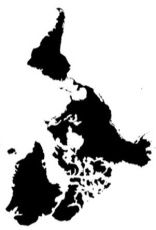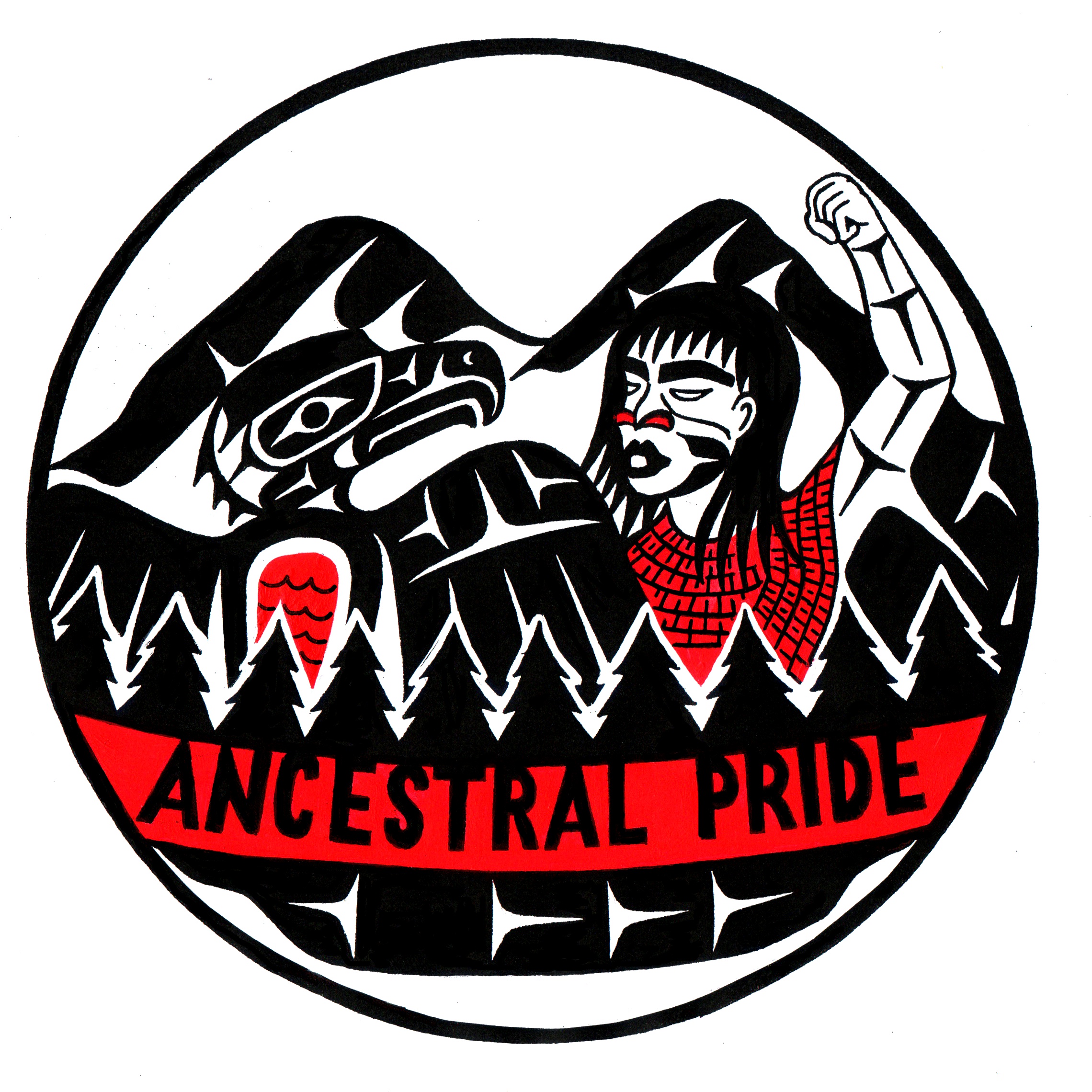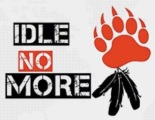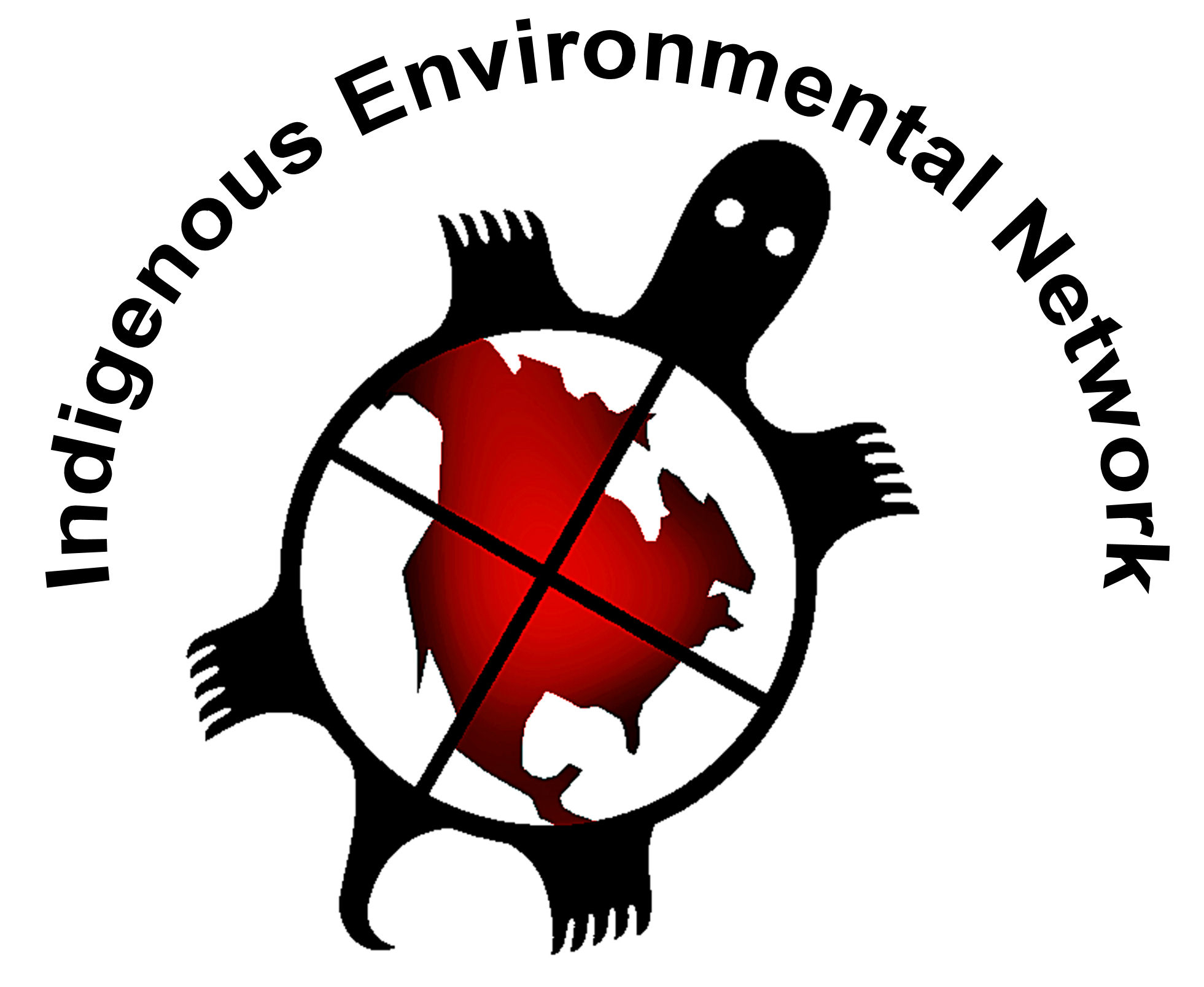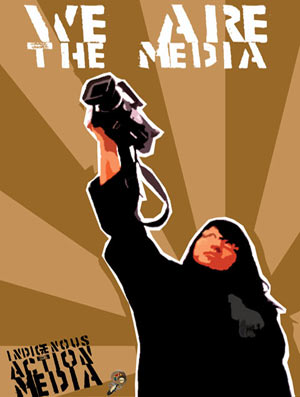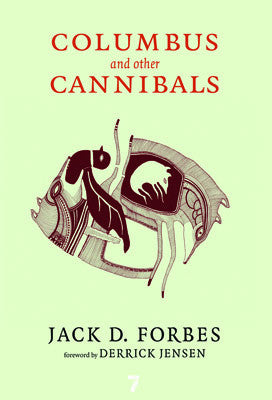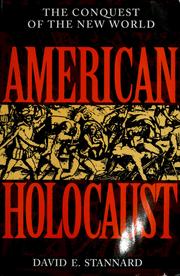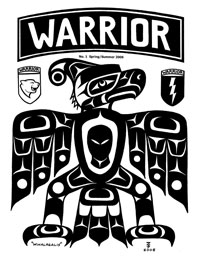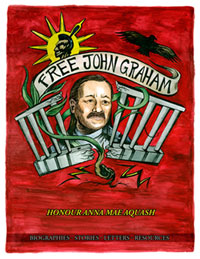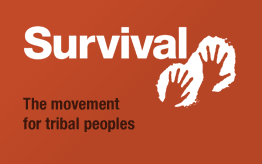 From Ancestral Pride:
From Ancestral Pride:
Four years ago some very loving and kind ladies I met online at the WTE Sept babies forum, heard I was having a very hard time with paying rent, buying food, and then celebrating Christmas. They rallied round and we got a food hamper delivery, Christmas presents, and money for presents too. Then my cousin and his wife gave me their Christmas hamper from our nation as well. Wow. My heart was over flowing and how blessed I felt that my kids had presents to open and we had a turkey to cook for baby Jesus, and therein lies a huge reason why we stopped christmas and just said no to the addiction that is cheap consumer goods in the name of a god we don’t believe in and who’s followers tried their very best to commit genocide on us.
The stress, the capitalism, the unsatisfied kids and us when it came present time and no one got what they were wishing for. The fact that Santa was way nicer to kids with rich parents and we are not Christians nor have we ever been. How is it we could celebrate the birth of Jesus, and celebrate a religion that not only harmed us through residential schools and molestation, but also colonized and conquered so many of the indigenous cultures in their own land? Millions died to make Christianity the world power it is today and it felt like the worst kind of hypocrisy to perpetuate this belief system into our children’s psyche any longer, in my spirit I just knew something didn’t ring true and I felt I was disrespecting not only Christians but my ancestors. We have a rich and living culture with our own times of feasting, gifting, and celebrating. So why were we celebrating Christmas? How come it was so important to keep up the status quo and make sure my kids sat on a fat old white guys lap and tell him their wishes? Hope mongers, sad fact is that most ndn kids will not even get close to what they hoped for, or need at Christmas time. It seemed awful to tell them Christmas miracles happened and then year after year they see the lie and fallacy of pretending to be happy. Christmas is a great big facade over the veneer of dominant culture. Why do so many get depressed over the holidays? Why do so many commit suicides over the holidays rather than any other time of the year? This is because society feeds us a commercial lie, a lie that Christmas miracles happen, that all our troubles will be fixed, that instant credit will relieve of us debt for the month so we can purchase unrealistic items that will be swiftly forgotten over the year. Christmas has never solved anyone’s problems and in fact can create such a debt that people pay it off until the next year.
Christmas is for white people and is a lie, you don’t ever see anyone in the commercials and the ads in the malls that look like us. In all the shows and the Christmas specials on TV there is never any mention of our people or what we suffered through. Or for that matter you never see a commercial with a happy “first nations” family looking super rich and buying each other the latest $1000 tablet like assholes. We are the forgotten and hated bastard children of a society that would rather we were not here to make them feel uncomfortable.
Growing up the way I did, I lost faith in santa really early. Living in Buffalo New York with my mother were some of the coldest winters I had experienced in both my life and of course in actual degrees. Getting a broken slinky placed on the TV because we had no tree and watching my mama fake hilarity with drugs to make herself feel better for having nothing left a lingering hatred and sadness that to this day still hurts my little girl heart. I remember spending a Christmas with my dad and other mother. He told me before I went to bed about solstice and while I lay in bed and cried for my sisters and mama it was comforting to think of my ancestors dancing and singing by the firelight on the longest night of the year, celebrating something that was OURS and for us.
Giving it up was easy… for us. Not so much for the children, we still celebrate on the solstice and have food, presents, and family time but I know it is hard on them because we are “different” for the younger ones they are happy to be different and tell their classes we celebrate our own way. For the older ones they get it and love us and celebrate with us, but the middle ones the teens it’s harder for them to accept it. They still feel left out and weird, it’s hard on teens to be seen as different from the norm. They have asked us why, why can’t we be normal or be like other families. Why do we always have to do things in a way that no one else does. There is no easy answer for that and in struggling to find where we fit in this world that is seeking to assimilate us and create a global village of many different and beautiful cultures sometimes I feel lost in our goals as well. It would be way easier to just follow the colonial flow and participate in the death of our culture at the hands of cheap consumerism.
Mostly though crazy childhood aside (thanks genocide, manifest destiny, and colonization) I got tired of making snide comments on Christmas day. I got tired of being the “hater” and realized oh yes, I have free will; I am an autonomous being with a rich culture history and love of indigenous life. I felt shame and anger for participating in a celebration that felt weak to me and I felt bad for putting my feelings into the celebrations of those I loved. The situation was unfair to us all, it’s not my place to tell anyone how to celebrate but I can remove myself from that which carries such a heavy price tag and allow others the joy they feel but I cant bare to mimic any more. Not to say that I didn’t spend my fare share of years desperately trying to keep up with a mainstream ideal of what holidays are and spend a shit ton of money we didn’t have on a day I can now openly and with relief say I hate.
We have family members who are Christians and my husband and I respect their right to believe in what they believe in for any reason, as is there ‘god’ given right. For us though we knew and felt a different way was appropriate to us and our culture. We decided to stop celebrating a religion that was and still is central in the colonization of our people, our strength is in our resolve and we knew that to protect our own sense of history, self, and our indigenous identity we could no longer pretend. Our children deserve better. They deserve to know the reality of consumerism, corporatism, and Christianity, how the last 50 years in Canada is a big white washed lie and that we are not all participants in this scheme.
The children of our people have a right to know our own celebrations, have a right to be proud of whom they are. Reinforcement is needed to create a healthy relationship of our ways, many decry our culture is dying yet do nothing more than pay lip service to the teachings that are begging for us to recognize and revive them. This is so important to me, it is a dream to see our nations reclaiming our indigenous celebrations and celebrating them freely and proudly. It is ok for us not to be like the dominant culture, how freeing to know now is a time when it is not illegal to practice our ways, the Indian agent is not going to come and jail us for singing and dancing; anymore. The shame and the past history that has wounded us all even those yet to be born does not have to impact our spirits so deeply that we do not even remember our own ways. Reclaiming the very real and relevant holidays that our people enjoyed has to be much deeper and more involved then it is.
Today in these times of shopping malls, plastics, mining that impacts indigenous people for the electronics we so desperately need is not our way. Yes we are all complicit in attaching ourselves to these products and rabid consumerism. Christmas and Easter are the biggest scam in colonial history. Sacred ancient customs and reverent ceremonies have been taken and bastardized by corporate culture until it is so twisted today that it would be unrecognizable to the people from a century ago. I aint no angel and I have definitely been and am as GUILTY as the bible says Eve was for the original sin, yes I admit I get sucked into the consumer nightmare. BUT as I grow and evolve I can RESIST, and resist I do. We do not need to feel guilt or different for these acts of resurgence and sovereignty. Giving up Christmas is not a trend or a band wagon, it’s a jump into a whole world of unknown adventures, a lifestyle, living closely to the earth and feeling the pain our mama is enduring for our toys, purses, iPhones, make up, and toilet paper (another pet peeve for another time LOL). Not to mention ‘thanksgiving’ and the reality for indigenous of the new world eating turkey on a day celebrating contact and the beginning of our genocide is like Jewish people giving thanks and celebrating the day Hitler opened Auschwitz.
How can we be self determined if we are not reclaiming every last little bit that was stolen from us, beat from us, and shamed from us. How can we entertain the ideas of governing ourselves if we are not a culture whole and as intact as we can be after contact and colonization has damaged us so? Our elders are dying, literally for us to talk with them, learn from them, record their knowledge in our hearts and minds and share it with those younger than us. I suffer tremendous guilt and shame some times because even though I am busy and have plenty of beautiful brown babies to look after I still feel badly. I don’t visit enough, learn enough, or try harder.
Continue reading →
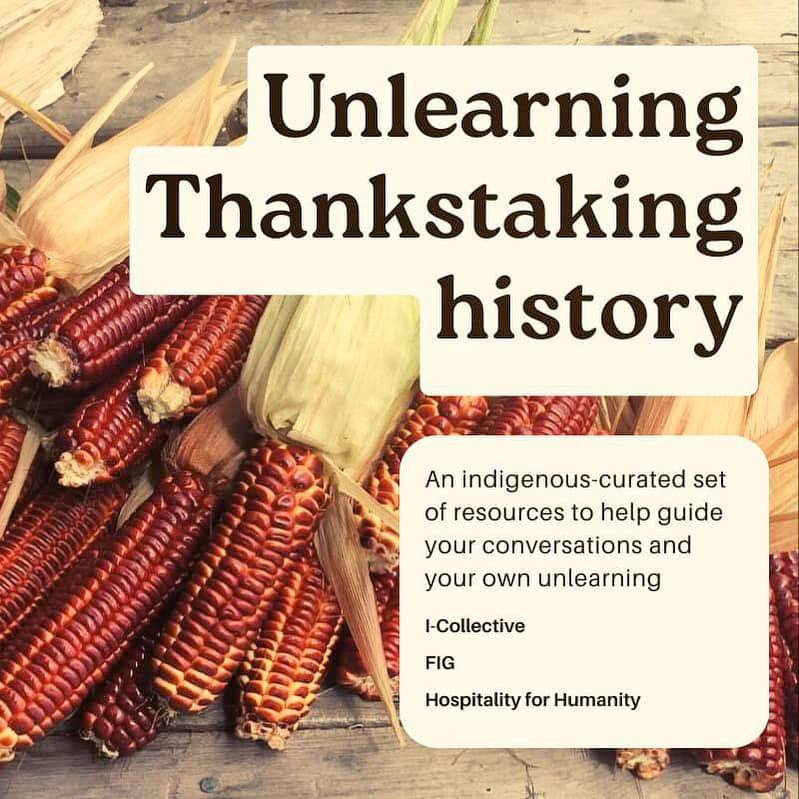

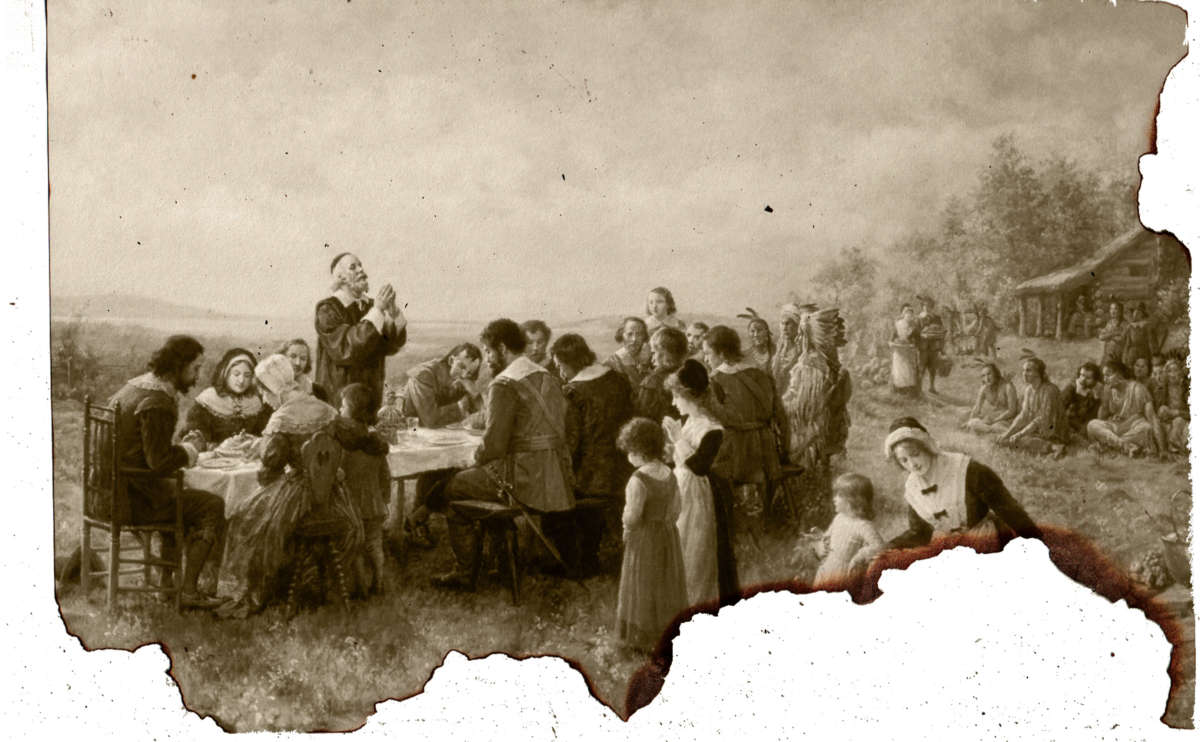
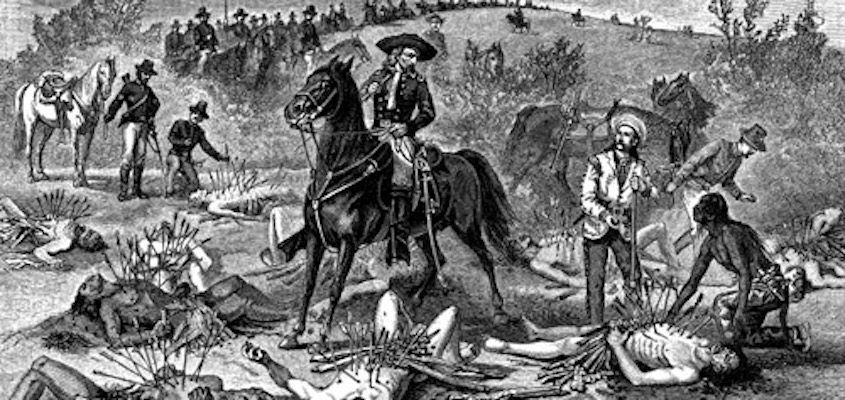

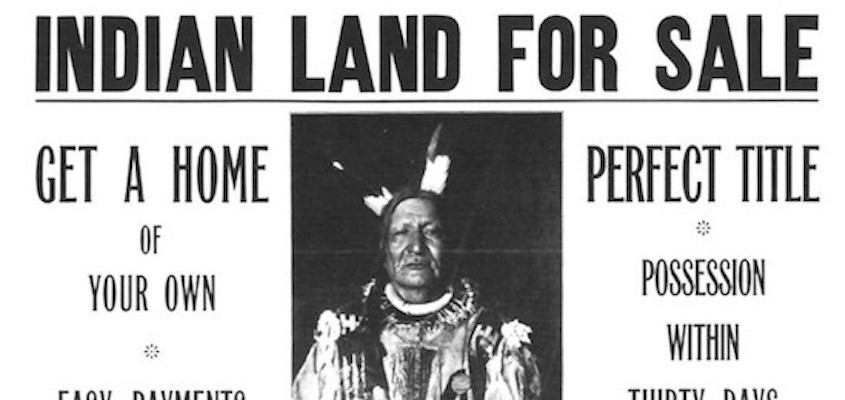

:focal(403x335:404x336)/https://public-media.si-cdn.com/filer/b9/39/b939aa2b-b931-45d4-9d7b-57b6084876a6/800px-wampanoag2.jpg)



